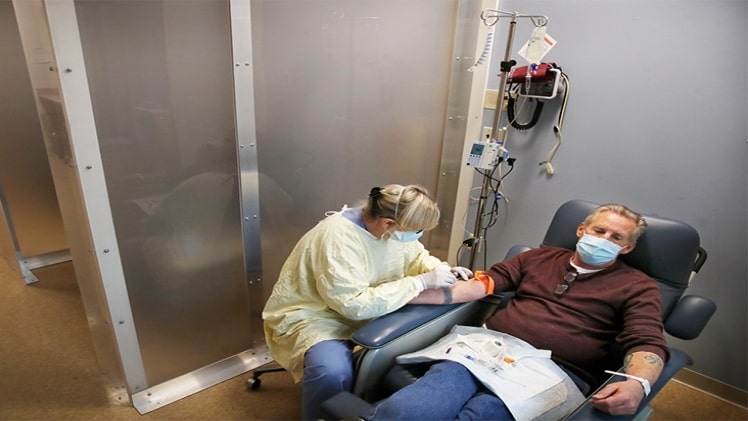Since the announcement of the COVID-19 pandemic, scientists have been coming up with various treatments for the disease. Monoclonal treatment is one of the promising treatments for mild to moderate Covid-19. Monoclonal treatment, also known as Monoclonal antibody therapy, uses Monoclonal antibodies to stimulate your immune system to fight against harmful invaders like viruses. This therapy helps reduce the hospitalization of patients by reducing the viral load in the body, which lowers the severity of the symptoms. You can choose to use Monoclonal treatment in Southaven if you have mild or moderate COVID-19 disease. Although the therapy was developed by scientists two years ago, many myths have come up, and here are some.
Anyone can get Monoclonal treatment.
Not everyone can have the treatment. Specialists follow specific guidelines during administration to patients. Monoclonal treatment is right for adult COVID-19 patients experiencing mild to moderate symptoms. You cannot get this therapy if you have severe symptoms. The guidelines require children to be above twelve years, weigh around forty kilograms and be Covid-19 positive with high chances of getting severe infection to take Monoclonal antibody therapy.
People with low oxygen levels can get Monoclonal treatment.
You cannot get Monoclonal therapy if you have low oxygen levels or are hospitalized. The treatment is only effective and safe for mild or moderate infections. Your specialist will tell you when to take it.
Any doctor can administer Monoclonal treatment.
Monoclonal therapy is only administered by a specialist with complete knowledge of its functions. It is administered intravenously or subcutaneously within forty-eight to seventy-two hours of infection. You can get it within seven days in the case of an OPD.
You do not need to isolate yourself after Monoclonal therapy.
Receiving a Monoclonal treatment does not mean you cannot get COVID-19. The treatment only improves your body’s immunity to fight the virus. You still need to isolate and follow preventive measures to protect yourself and others.
You cannot get the COVID-19 vaccine after Monoclonal therapy.
Patients receive the COVID-19 vaccine after Monoclonal treatment, although you have to wait for ninety days. Since receiving the COVID-19 vaccine does not guarantee that you will not get the disease, you can still receive Monoclonal treatment after getting the vaccine.
Risks of Monoclonal therapy
- Allergic reactions. They can happen during and after therapy. The common symptoms associated with allergies include; fever, breathing difficulties, nausea, shortness of breath, muscle aches, feeling tired, chest pain, wheezing, itching, dizziness, sweating, and low or high blood pressure.
- An infusion can lead to pain, bleeding, skin bruising, soreness, swelling, and infection at sight may occur.
- Monoclonal treatment can interfere with the body’s ability to prevent future infections of SARS-CoV-2.
- Antibody therapy can reduce your immune response to a vaccine for SARS-CoV-2.
- You can have severe effects such as serum sickness or long-term conditions like cancer, autoimmune diseases, and cardiotoxicity. Lung inflammation occurs in rare cases. For these reasons you need, the administration of this treatment requires a highly trained specialist competent with the infusion and who can respond effectively to all adverse reactions.
Avoid the risk of being hospitalized due to COVID-19 infection by taking Monoclonal treatment. Schedule an appointment with Desoto Family Care Clinic to learn if you qualify for Monoclonal antibody therapy.

